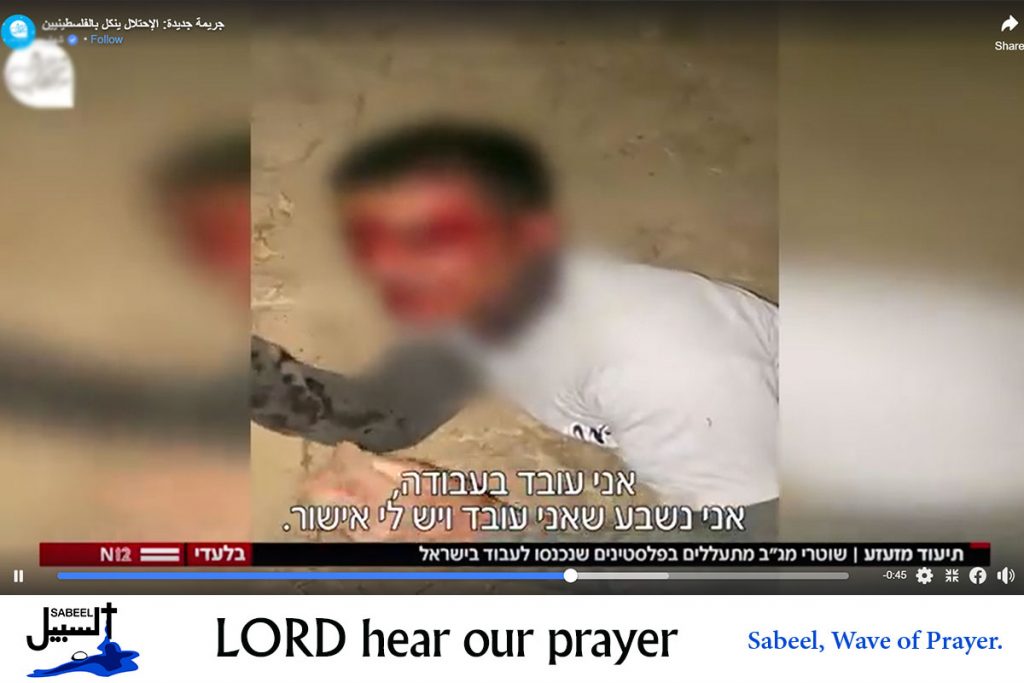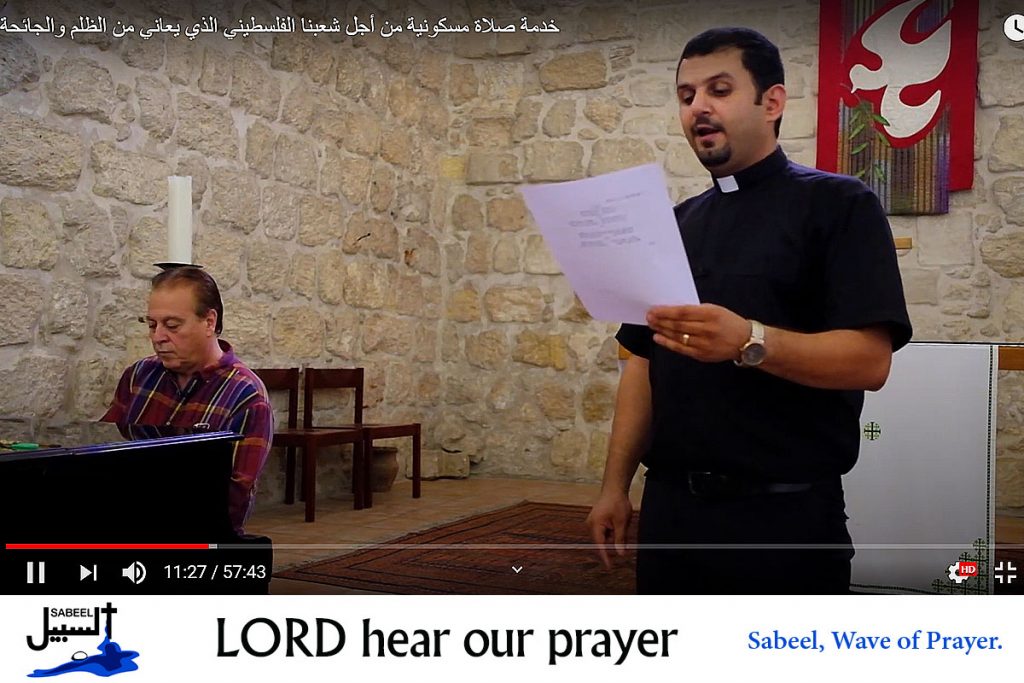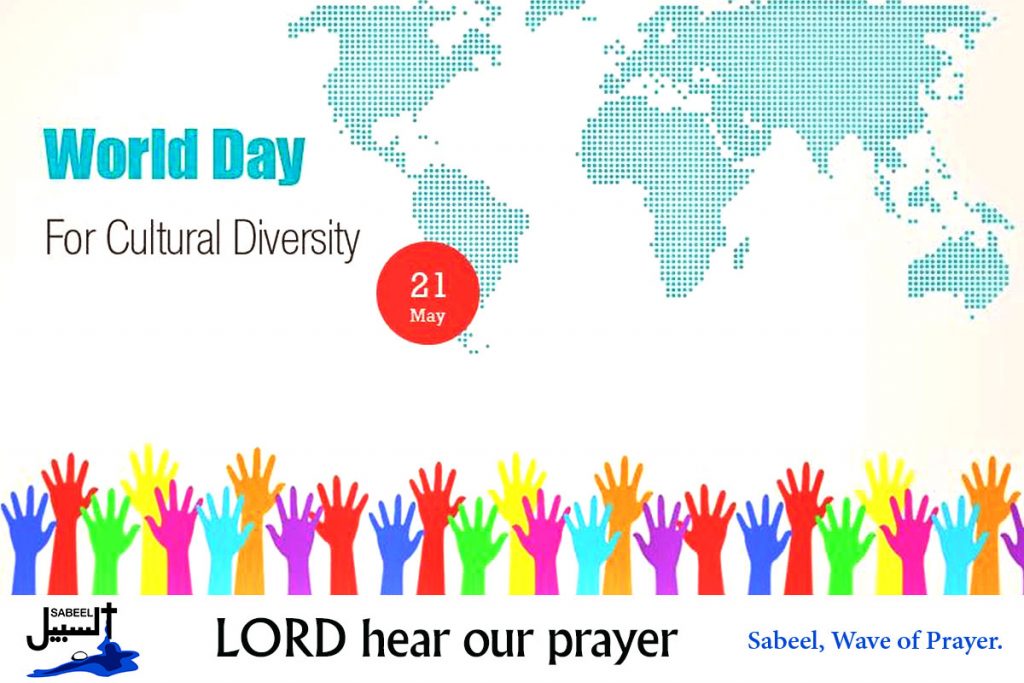The heads of Christian denominations in Jerusalem have launched a campaign protesting violence by radical groups and attempts by Israeli settler organizations to acquire properties in the Old City, decrying a “systematic attempt to drive the Christian community out of Jerusalem and other parts of the Holy Land.”
The campaign launched last week, ahead of Christmas, joins other joint operations by Jerusalem churches against Israel’s policy in the Old City.
The campaign includes a new dedicated website, petitions and articles in international media. The church leaders highlight “incidents of physical and verbal assaults against priests and other clergy,” and the inability of the police to provide adequate protection.
They also decry attempts by “radical groups [to] continue to acquire strategic property in the Christian Quarter,” which is interpreted as being aimed at the Ateret Cohanim nonprofit’s attempts to enter two large buildings it bought from the Greek Orthodox Patriarchate in the Christian Quarter.
In a response to the campaign by the Council of Patriarchs and the heads several churches, the Israeli Foreign Ministry said their accusations were “baseless and distort the reality of the Christian community in Israel.”
“Religious leaders have a critical role to play in education for tolerance and coexistence, and church leaders should be expected to understand their responsibility and the consequences of what they have published, which could lead to violence and bring harm to innocent people,” the Foreign Ministry said.
The Greek Orthodox Patriarch of Jerusalem, Theophilos III, who was behind the campaign, said that “at no time in human history has the future of our Christian communities been shakier,” adding that “radical groups are intent on uprooting us from our homes, businesses and ritual sites. Instead of being divided, we must unite on behalf of a peaceful and tolerant Holy Land for all religions.”
The joint statement was signed by the heads of all the large churches in the city, including the Armenian Apostolic Orthodox Patriarch of Jerusalem, the Latin Patriarch of Jerusalem, the Custody of the Holy Land representing the Vatican, and the head of the Anglican Church.
“Throughout the Holy Land, Christians have become the target of frequent and sustained attacks by fringe radical groups,” says their statement. “Since 2012 there have been countless incidents of physical and verbal assaults against priests and other clergy, attacks on Christian churches, with holy sites regularly vandalized and desecrated, and ongoing intimidation of local Christians who simply seek to worship freely and go about their daily lives.”
The number of violent incidents toward Christian clergy, mostly on the part of young Jews, has increased recently. One of the churches that suffers the most from this problem in the Armenian Church, because it is located near the Jewish Quarter of the Old City. For example, in May two priests were attacked by four Jewish teens and a month ago a young man was documented spitting on the door of the church. An Armenian Church official said that at almost every religious procession of theirs they experience spitting and cursing.
Top of Form
“I’ve been in Israel since 1995 and never before have there been so many incidents like this,” said Father Koryoun Baghdasaryan, the chancellor of the Armenian Patriarchate of Jerusalem. “Every day that I leave my home for the Church of the Holy Sepulcher or to visit family, I’m afraid something will happen to me. There were always curses and spitting, in recent years physical violence also started.”
In addition, church leaders say that the government’s decision to “close the skies” to tourists because of the spread of the omicron variant has hurt Christian pilgrimage to the city for Christmas. The coronavirus restrictions also affect the passage of Palestinian believers from the West Bank to Jerusalem. The decision by Interior Minister Ayelet Shaked last week to allow the entry of Birthright groups into Israel in spite of the closing of the skies has also led to great anger among the church leadership, who claim it is discriminatory.
The fact that Christian pilgrims will not visit Jerusalem this year to celebrate Christmas significantly harms the churches financially, said sources involved in the matter. One of the considerations for launching the campaign was the desire to raise donations from the Christian world.
This distress comes in addition to the threat to evacuate two large buildings in the Christian Quarter, the Imperial Hotel and Petra Hotel. Recently, after a long legal battle, the hotels were transferred to the ownership of a Jewish organization that had bought the buildings, and which is now trying to evict the Palestinians who are running the hotels – and bring in Jewish families to live there. The heads of the Christian communities now fear that the change in ownership of the hotels – which were bought in a controversial deal by Ateret Cohanim 15 years ago using shell companies – could change the character of the Christian Quarter.
The release of the statement last week drew attention from a number of newspapers around the world, including the British Telegraph, Sunday Times and Times. The headline of an article written jointly in The Times by Justin Welby, the Archbishop of Canterbury, and Hosam Naoum, the archbishop of the Episcopal Church of Jerusalem and the Middle East – the Anglican Church – read: “Let us pray for the Christians being driven from the Holy Land.“
In a different article published in The Telegraph and written by Francesco Patton, the Custody of the Holy Land on behalf of the Vatican, he wrote: “In recent years, the lives of many Christians have been made unbearable by radical local groups with extremist ideologies. It seems that their aim is to free the Old City of Jerusalem from its Christian presence, even the Christian quarter.”
The statement was unusual not just for its content, but also because of the cooperation between the different Christian denominations in Jerusalem. Throughout history, the relations between the different churches has mostly been one of hostility and disputes, sometimes even violent ones.
This cooperation seems similar to that of 2018 when most of the Christian leadership in Jerusalem joined together to protest the law concerning church-owned lands and the dispute with Jerusalem city hall over the collection of local property taxes from certain church-owned institutions. In what was an unusual step in protest at the time, the church leaders closed the Church of the Holy Sepulchre.







